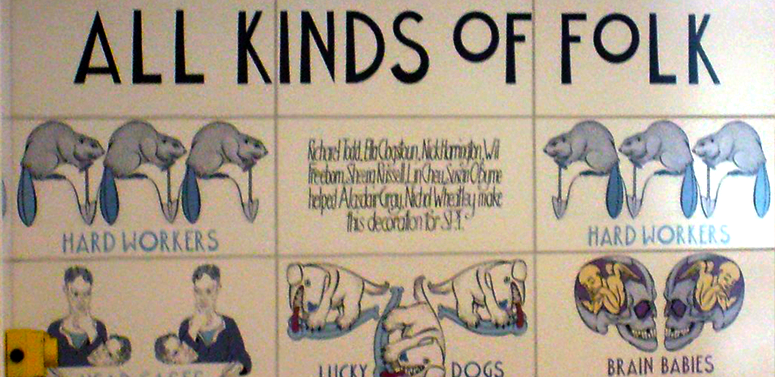Trainspotting named best Scottish novel of past 50 years
As part of Book Week Scotland – which ran throughout last week from 25 November to 1 December – the Scottish Book Trust has revealed the final result of its public vote on the 10 best Scottish novels of the past 50 years, drawn from a previously released longlist. Whether due to the current resurgence of interest in all things Irvine Welsh or simply because of its indelible mark on the Scottish cultural landscape these past 20 years, Trainspotting claims the top spot, a triumph made no less welcome by its predictability and one that presumably prompts another sigh of relief for Rebel Inc.
Coming in second is this writer’s own probable choice for the number one slot (although maybe it’s just a city allegiance thing and more people from Edinburgh voted or something), Alasdair Gray’s monumental Lanark, Scottish literature’s own equivalent of “Like A Rolling Stone”, the book that exploded all notions of what a Scottish novel could be in the same way Bruce Springsteen described the opening drum beat of the Bob Dylan song as sounding ‘like somebody’d kicked open the door to your mind’.
Third place goes to Ian Rankin’s exemplary work of tartan noir Black and Blue, eighth in the series of novels featuring his rumpled Edinburgh cop Rebus and the first to really broaden the series’ view of Scotland beyond the east coast, drawing parallels between true-life Glaswegian serial killer Bible John and the rapacious oilmen of the North Sea.
A crowdpleasing top three, to be sure (and again, to be expected from a popular vote), but dissent has predictably set in in the comments section on the Scottish Book Trust page nevertheless, with one particular foamer expressing dismay that the top of the pack are, respectively, ‘a middle class wallow in lowlife, a dull adolescent rant and a run of the mill policier in a kilt’. This is your daily reminder to never read the comments.
The much missed Iain Banks is the only author to feature twice on the top ten (as was also the case on the longlist), ducking the ‘one title per author’ rule by featuring both as darling of the literary set Iain Banks and as sci-fi maven Iain M. Banks, with The Bridge and Excession respectively. The rest of the top ten is filled out by Christopher Brookmyre’s One Fine Day in the Middle of the Night, Alan Warner’s Morvern Callar, Alexander McCall Smith’s 44 Scotland Street, Janice Galloway’s The Trick is to Keep Breathing and William McIlvanney’s Docherty. (Bonus piece of trivia: as a teenager, I once inadvertently got William McIlvanney out of bed by phoning his house at 9am on a Saturday. He did not sound best pleased.)




